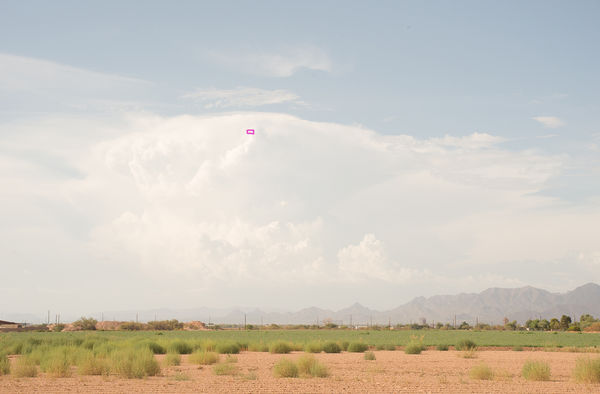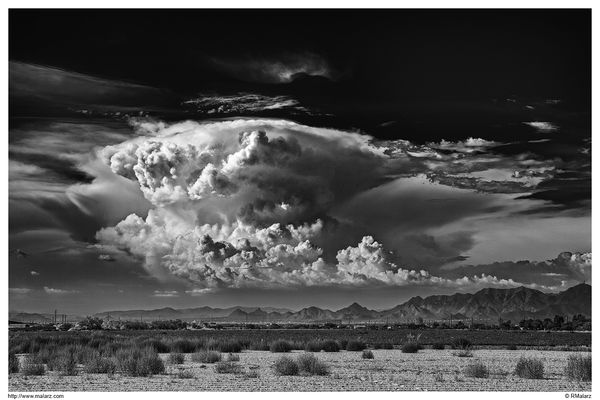How important is it to get the "correct exposure"?
Mar 31, 2019 13:11:13 #
Kozan wrote:
If you take a look at the last 4 or 5 issues of Pr... (show quote)
Interesting. I've read about ETTR and followed the discussions on UHH but have never really tried it. Maybe others can comment on "Does it make sense"?
Mar 31, 2019 13:12:38 #
Auto is just fine - I have captured a few great and many good photos over the years with auto film and digital cameras. I started out with auto on my present camera. But learning your camera's settings gives you so many opportunities to change your output. Don't be afraid to stretch your mind by exploring new settings. The camera won't break if your settings are wrong for what you're trying to do.
Just delete and try again. Lots of online lessons and tips are available.
Just delete and try again. Lots of online lessons and tips are available.
Mar 31, 2019 13:46:19 #
agillot wrote:
correct exposure in auto mode with perfect light will work fine . manual mode will allow you to take near perfect pictures in not perfect light . like shooting very bright subjects , or shooting with the sun not behind you .the auto exposure will over or under expose by at least one f stop .you can change that in manual mode .
You can also do that with EC
Mar 31, 2019 13:52:48 #
BebuLamar wrote:
I like your Triangle better than the stupid "Exposure Triangle".
Not nearly the same thing. His “triangle” are three elements of a good photo. It’s pretty much fixed. The whole point of the exposure triangle is the understanding how changing one side of the triangle affects the other two. His “triangle” is rather pointless, you can’t add more “composition” to make up for lack of focus.
Mar 31, 2019 13:55:15 #
Los-Angeles-Shooter
Loc: Los Angeles
The OP argues for slovenliness and lack of technical competence.
Mar 31, 2019 14:22:44 #
Los-Angeles-Shooter wrote:
The OP argues for slovenliness and lack of technical competence.
???
"Yes, you should try to get the exposure as close to "perfect" in the camera."
Mar 31, 2019 14:23:05 #
I'm in the crowd that supports correct exposure. Correct exposure is an absolute must to produce the expressive photograph one is attempting to create.
Sure, one can attempt to "fix" it in photoshop, but that hardly ever works out as well as a correctly exposed initial capture.
--Bob
Sure, one can attempt to "fix" it in photoshop, but that hardly ever works out as well as a correctly exposed initial capture.
--Bob
srt101fan wrote:
Many folks here say or imply that getting the &quo... (show quote)
Mar 31, 2019 14:23:42 #
Nikonuser
Loc: South Dakota
Try using the back focus feature on your camera and experiment with it. You may be surprised to learn you use the focus button half pressed for just the exposure. With this method, you can leave the camera in the continuous focus mode and just using the thumb to switch back and forth. I get a lot less out of focus pictures using this method and so do most professionals of which I am definitely not. Great for action. Read up more about this. You may never go back. Since you are relatively new at this you have not formed the habit of using your index finger for focusing and taking the picture.
Mar 31, 2019 14:24:51 #
Kozan wrote:
If you take a look at the last 4 or 5 issues of Pr... (show quote)
But then you only look at digital images.
Mar 31, 2019 14:25:27 #
SuperflyTNT wrote:
Not nearly the same thing. His “triangle” are three elements of a good photo. It’s pretty much fixed. The whole point of the exposure triangle is the understanding how changing one side of the triangle affects the other two. His “triangle” is rather pointless, you can’t add more “composition” to make up for lack of focus.
But it's a bit better than the stupid exposure triangle.
Mar 31, 2019 14:48:37 #
Andy, to me, correct exposure is the exposure needed to render the final image what I saw in my mind's eye when I visualized the scene prior to capturing it.
--Bob
--Bob
AndyH wrote:
What does "correct" exposure mean? br b... (show quote)
Mar 31, 2019 14:51:04 #
catchlight..
Loc: Wisconsin USA- Halden Norway
Some of the best images I have ever seen have very high contrast with under exposure dominating most of the photo.
The correct execution, or use of light, can be more effective and have little to do with perfection.
I personally shoot slightly under and uncover shadow detail in post processing if needed. Exposing to the right has little value in my opinion. I would rather have a dynamic sky with no blown highlights or high contrast that can showcase a point of interest ...
The correct execution, or use of light, can be more effective and have little to do with perfection.
I personally shoot slightly under and uncover shadow detail in post processing if needed. Exposing to the right has little value in my opinion. I would rather have a dynamic sky with no blown highlights or high contrast that can showcase a point of interest ...
Mar 31, 2019 15:22:16 #
As I read through this thread, I found it interesting that many people veered off the topic raised by the OP. that being exposure. Sure there are other aspects of a good photograph, but the topic is exposure. One of my earlier replies was correct exposure is the exposure needed to render the final image of what I saw in my mind's eye when I visualized the scene prior to capturing it.
The technical side of how to accomplish this is done by rigorous testing of any "new" camera. Once I know the camera's limitations, I know how to use those to produce the final image I want.
To me, this SOOC image is exactly what I wanted and the light values were placed where they needed to be to produce the final image I visualized when taking the photograph. The reason for the -sort of comment is I removed the inherent green cast used by the custom WB setting I use which, for all intents and purposes, includes the G2 sensels of the sensor. The small red rectangle indicates the area of the scene I metered. Then, through the all-important aspect of exposure, Placed that part of the scene in the Zone I wished for the final print.
--Bob
The technical side of how to accomplish this is done by rigorous testing of any "new" camera. Once I know the camera's limitations, I know how to use those to produce the final image I want.
To me, this SOOC image is exactly what I wanted and the light values were placed where they needed to be to produce the final image I visualized when taking the photograph. The reason for the -sort of comment is I removed the inherent green cast used by the custom WB setting I use which, for all intents and purposes, includes the G2 sensels of the sensor. The small red rectangle indicates the area of the scene I metered. Then, through the all-important aspect of exposure, Placed that part of the scene in the Zone I wished for the final print.
--Bob
srt101fan wrote:
Many folks here say or imply that getting the &quo... (show quote)
Mar 31, 2019 15:23:31 #
In most situations, I aim for correct. If the lighting is unusual, with light or dark areas where I want to have good exposure, I make adjustments. Then there's always post processing.
Mar 31, 2019 15:24:06 #
srt101fan wrote:
Many folks here say or imply that getting the &quo... (show quote)
Unless you are working in a studio, every shot is a different exposure. Every different composition will have a different exposure and if you want to get a little experimental using light or shadow you will choose a different exposure. Correct.....is what was right when the image that you produced pleases you.
There is Soooo much to learn in photography.....exposure is simply one of the things to try to master. then the list goes on and on!
If you want to reply, then register here. Registration is free and your account is created instantly, so you can post right away.





